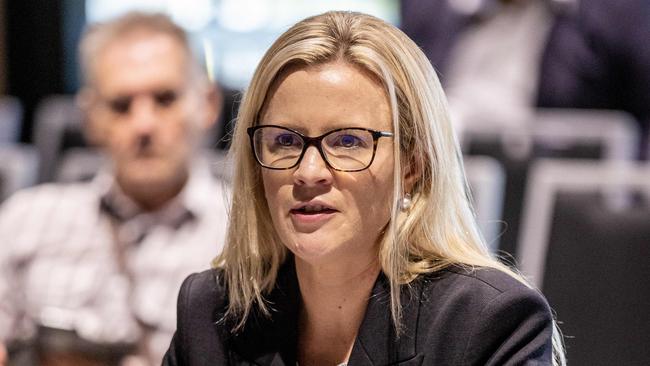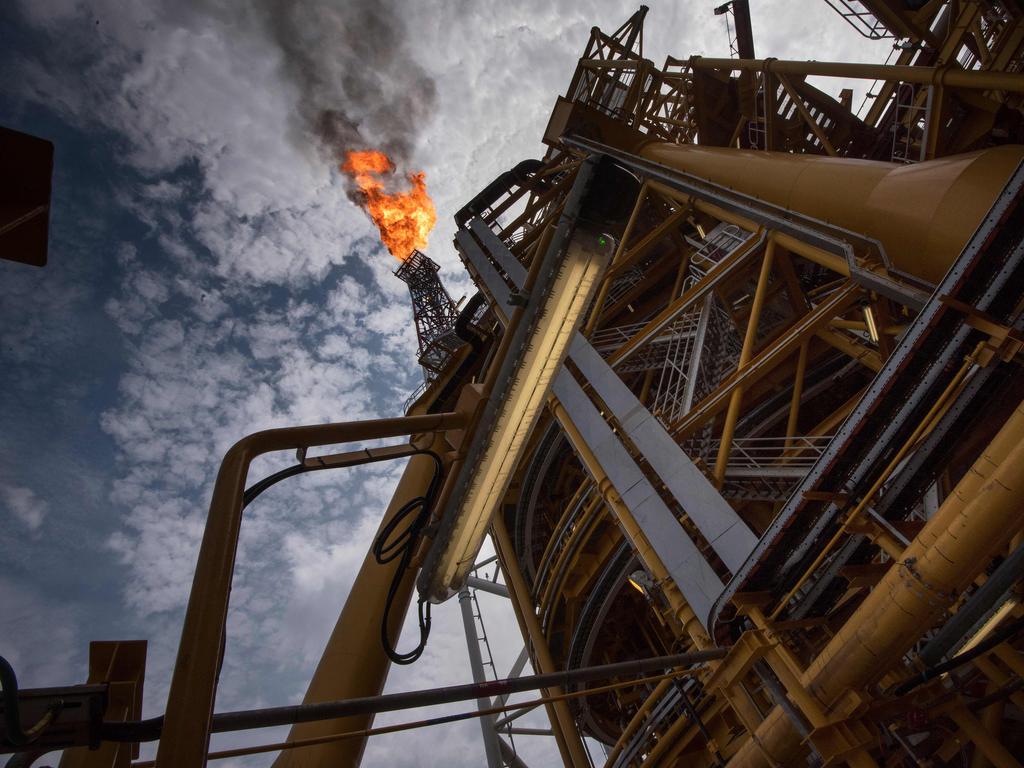Broken oil and gas approvals system ‘to drive away energy investment’
The peak oil and gas lobby has warned the nation faces a heightened threat of sovereign risk unless it urgently fixes the approvals process in the sector.

Offshore energy projects worth tens of billions of dollars are being held up by a logjam of more than 40 environmental approvals that remain in limbo, with the nation’s gas industry warning that regulatory confusion was amplifying Australia’s sovereign risk.
The warning comes in the wake of a key Federal Court ruling that could delay Woodside Energy’s massive $16bn Scarborough gas project off Western Australia after it found the regulator had wrongly approved a seismic survey because of inadequate consultation with Indigenous Australians.
Australian Energy Producers chief executive Samantha McCulloch said the government needed to make the review of environmental management regulations announced in the May budget a “top priority” and declared that “reform is urgently needed”.
Ms McCulloch said there was a backlog of more than 40 environmental plans linked to gas projects worth tens of billions of dollars before the National Offshore Petroleum Safety and Environmental Management Authority that were “queued up in its approvals process – many since 2022”.
She said this was emblematic of a broken offshore environmental regulation system that was now threatening the nation’s economy and climate change targets, noting that offshore projects aimed at reducing emissions were also at risk.
“Potential emissions reductions on the path to net zero are under threat,” Ms McCulloch said.
“And the many thousands of jobs, tens of billions of dollars of investment and substantial taxation revenues delivered to government budgets from major projects are on the line.”
Describing the Federal Court decision last week as “bewildering” but “not an isolated incident”, Ms McCulloch noted that Santos experienced a similar situation last year when the regulator’s approval for its $5.8bn Barossa Project off the Northern Territory was also set aside.
She said hold-ups and problems in the environmental approvals process would present risks to key elements of the government’s agenda, including its plan to decommission offshore petroleum activity in coming decades and set up offshore windzones that are also overseen by environmental authority.
“The deployment of emissions-reduction technologies is also at risk, given offshore carbon-capture utilisation and storage (CCUS) projects must also receive these same approvals,” she said. “And then there’s the pipeline of oil and gas decommissioning projects that will also require approvals.
“Yet there’s a logjam in the approval process: only four environmental plans have been approved since the first Barossa decision and remain so. The fifth was the overturned Scarborough approval.”
Labor announced in the budget that it would conduct a review of environmental management regulatory frameworks for offshore resources in a bid to provide clarity for major projects.
A spokesman for Resources Minister Madeleine King said the budget papers had committed $12m over three years to “comprehensively review Australia’s offshore environment and carbon management regulations”.
“This work is under way, led by the Department of Industry, Science and Resources. Australia is committed to remaining a long-term reliable supplier of resources and energy to our trading partners and it will remain a stable and secure investment destination,” the spokesman said.
The government said this was demonstrated by recent agreements and pointed to the decision by two Japanese investors – Sojitz Corporation and Sumitomo Corporation – to buy into Woodside’s Scarborough project in a deal worth more than $750m.
But Ms McCulloch said the government review needed to be fast-tracked, warning that regulatory uncertainty “amplifies the issue of sovereign risk”.
She said that Australia’s “reputation among international investors as a safe and reliable investment destination and energy supplier” had been brought into question.
“What international investor would seriously think Australia is a good place to invest billions of dollars when an approval granted by the national regulator means so little?” she said. “Regulations which provide clarity and certainty for industry while maintaining consultation obligations are desperately needed.”
“The commonwealth has promised, in its federal budget, a review of environmental management regulations for offshore energy to provide clarity. This review must be fast-tracked.”
Opposition resources spokeswoman Susan McDonald said the government had been warned “time and time again since September last year of the urgency of fixing the offshore environmental regulations, but they have sat on their hands knowing it would grind industry approvals to a halt”.
“Announcing a three-year review into a problem that needs fixing now is obviously a deliberate strategy by the government to drag its feet,” she said.
“Australia has world-class environmental standards, but the uncertainty of a broken approvals process … will only drive investment and jobs overseas to countries where standards are lower”.
Following the Federal Court decision last week, Woodside said it would continue to work with the environmental authority to secure an acceptable environmental plan after the regulator found the company failed to properly consult Aboriginal campaigners over a seismic survey.
Ms McCulloch said that “comprehensive and effective consultation with traditional owners has been an important part of the work of our sector for decades and we are committed to it”.
Legal submissions from Woodside employees also showed multiple meetings, correspondence and attempted engagement between the company and Indigenous woman Raelene Cooper over a period of years.
Ms Cooper, who launched the legal action, was first briefed on Woodside’s plans for Scarborough in 2018.








To join the conversation, please log in. Don't have an account? Register
Join the conversation, you are commenting as Logout